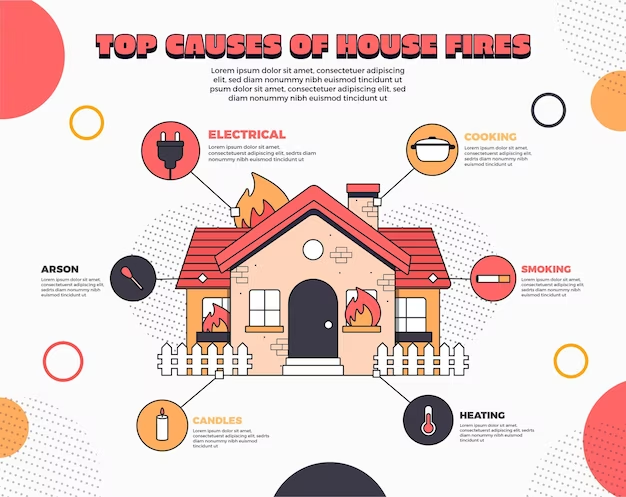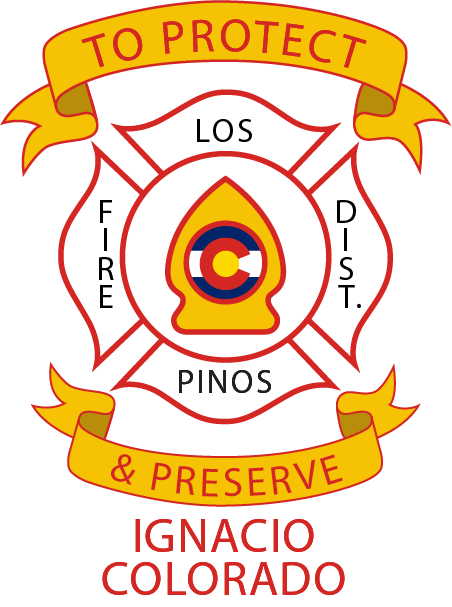Preventing Home Fires: Essential Tips to Keep Your Home Safe
Image Source: FreeImages
Home fires can be devastating, causing significant damage to property and, tragically, even loss of life. The good news is that many home fires are preventable. By taking proactive measures and following basic fire safety precautions, you can greatly reduce the risk of a fire breaking out in your home. In this comprehensive guide, we will explore the top causes of residential fires and provide you with essential tips to keep your home safe. From kitchen safety to electrical system maintenance, we'll cover it all. So, let's dive in and learn how to prevent home fires before they start.
1. Understanding the Causes of Home FiresBefore we delve into fire prevention tips, it's important to understand the leading causes of home fires. By being aware of these causes, you can take targeted measures to mitigate the risks. According to the National Fire Protection Association (NFPA), the primary causes of home fires in the United States include:
- Cooking: Cooking is the leading cause of home fires, accounting for nearly half of all incidents. Unattended cooking and cooking while under the influence of alcohol or medication are common culprits.
- Heating equipment: Faulty heating equipment, such as space heaters and furnaces, can quickly ignite a fire. Lack of maintenance and placing flammable items too close to heat sources contribute to these incidents.
- Electrical systems and equipment: Electrical malfunctions, outdated wiring, and improper use of electrical appliances can lead to fires. Look out for warning signs such as blown fuses, damaged wiring, and flickering lights.
- Intentional fires: Fires intentionally set, whether for malicious purposes or accidents caused by children playing with fire, pose a significant risk. Proper education and supervision are essential in preventing these incidents.
- Smoking: Smoking materials, such as cigarettes and ashes, can easily ignite flammable items in your home. Careless disposal of smoking materials is a major cause of fires, particularly in bedrooms.
- Candles: Candles may create a cozy ambiance, but they also pose a serious fire hazard. Unattended candles and placing them too close to flammable objects are common causes of candle-related fires.
- Christmas trees: During the holiday season, Christmas trees can pose a fire risk if not properly cared for. Dry trees near heat sources and faulty Christmas lights are potential catalysts for fires.
2. Fire Prevention in the KitchenThe kitchen is the heart of the home, but it's also a hotspot for potential fire hazards. Follow these essential fire prevention tips to keep your kitchen safe:
- Be alert and avoid cooking if you're sleepy or under the influence of alcohol.
- Stay in the kitchen while frying, grilling, or broiling food. If you need to leave, turn off the stove.
- Regularly check on food that's simmering, baking, roasting, or boiling.
- Keep flammable items away from the stovetop.
- In case of a small grease fire, smother it by sliding a lid over the pan. For an oven fire, turn off the heat and keep the door closed.
- If a fire continues or grows, evacuate immediately and call emergency services.
3. Heating Equipment Safety
Proper maintenance and safe usage of heating equipment are essential to prevent fires. Follow these tips to ensure your heating system doesn't become a fire hazard:
- Replace old space heaters with newer models that have automatic shut-off features.
- Keep space heaters at least three feet away from flammable materials.
- Schedule annual professional inspections and cleaning for furnaces and chimneys.
- Use sturdy screens for fireplaces and never use flammable liquids to start a fire.
- Allow fireplace ashes to cool completely before disposal.
4. Electrical System Maintenance
Proper electrical system maintenance is crucial for fire prevention. Follow these guidelines to keep your electrical systems and equipment safe:
- Have your home inspected by a qualified electrician, especially if you live in an older home.
- Hire a qualified electrician for any electrical work.
- Watch for warning signs of faulty wiring, such as blown fuses and discolored outlets.
- Install Arc Fault Circuit Interrupters (AFCIs) to prevent electrical arcing.
- Protect your home from power surges with surge protection devices.
5. Candle SafetyCandles can create a warm and inviting atmosphere, but they also pose a fire hazard. Follow these safety tips when using candles:
- Never leave burning candles unattended.
- Keep candles at least one foot away from flammable objects.
- Trim candle wicks to a quarter inch and avoid burning candles to the bottom of their containers.
- Extinguish candles before leaving the house or going to bed.
- Place candles in secure locations, out of reach of children and pets.
6. Smoking SafetySmoking materials are a leading cause of home fire deaths. To prevent smoking-related fires, follow these safety measures:
- Smoke outside to prevent accidental fires caused by cigarettes or ashes.
- Ensure cigarettes are fully extinguished before disposal.
- Avoid smoking when under the influence of medication that causes drowsiness.
- Never smoke around medical oxygen, as it can ignite and cause explosions.
- Use wide-based ashtrays and dispose of cigarette butts safely.
7. Christmas Tree SafetyWhile Christmas trees add festive cheer, they can also present fire hazards. Take these precautions to keep your holiday season safe:
- Choose a fresh tree with needles that are hard to pull from branches and don't break easily.
- Keep the tree away from heat sources like fireplaces, vents, and radiators.
- Check the water level daily and ensure the tree stand is filled with water.
- Position the tree away from doorways and high traffic areas.
- If using an artificial tree, look for the "Fire Resistant" label.
8. Additional Fire Safety TipsIn addition to the specific precautions listed above, here are some general fire safety tips to keep in mind:
- Install smoke alarms on every level of your home and test them regularly.
- Create a fire escape plan and practice it with your family.
- Keep fire extinguishers readily accessible and ensure everyone knows how to use them.
- Store flammable materials in a safe and well-ventilated area.
- Maintain a clear space around electrical panels and fuse boxes.
- Avoid overloading electrical outlets and using damaged or frayed cords.
- Educate children about fire safety and keep matches and lighters out of their reach.
By implementing these fire prevention measures, you can significantly reduce the risk of a home fire. Remember, fire safety is a year-round responsibility, so make it a priority to protect your home and loved ones from the devastating consequences of a fire.
"Fire prevention is everyone's responsibility. By taking proactive steps to mitigate fire risks, we can help ensure the safety and well-being of our homes and loved ones." - Los Pinos Fire Protection District
Additional Information:Fire safety education and preparedness are crucial components of preventing residential fires. It's essential to educate yourself and your family about fire safety measures, including creating an escape plan, knowing how to use fire extinguishers, and understanding the basics of fire behavior. Regularly reviewing and practicing your escape plan is vital to ensure everyone can evacuate safely in the event of a fire. Keep in mind that prevention is always better than dealing with the aftermath of a fire. Stay vigilant, take necessary precautions, and prioritize fire safety in your home.




